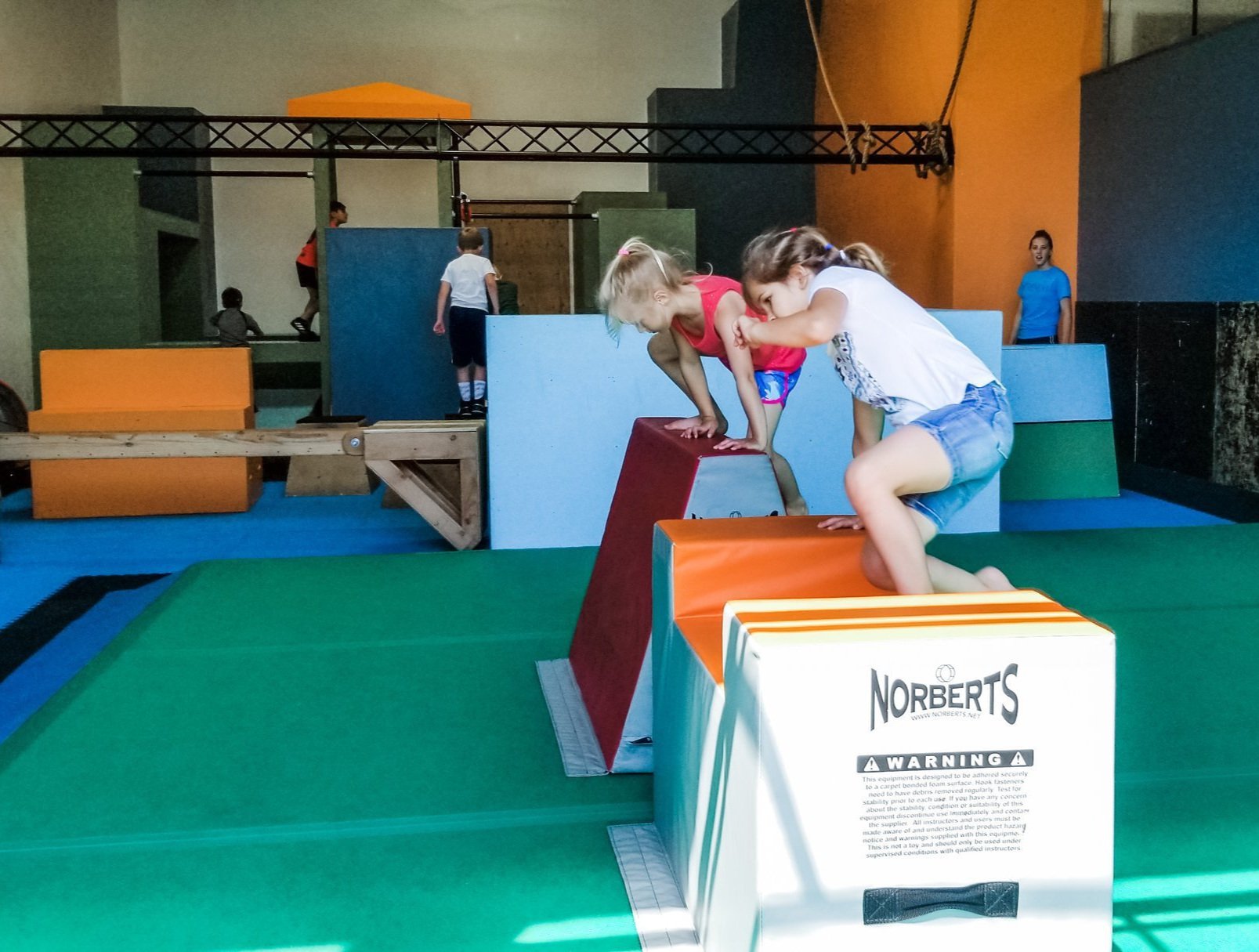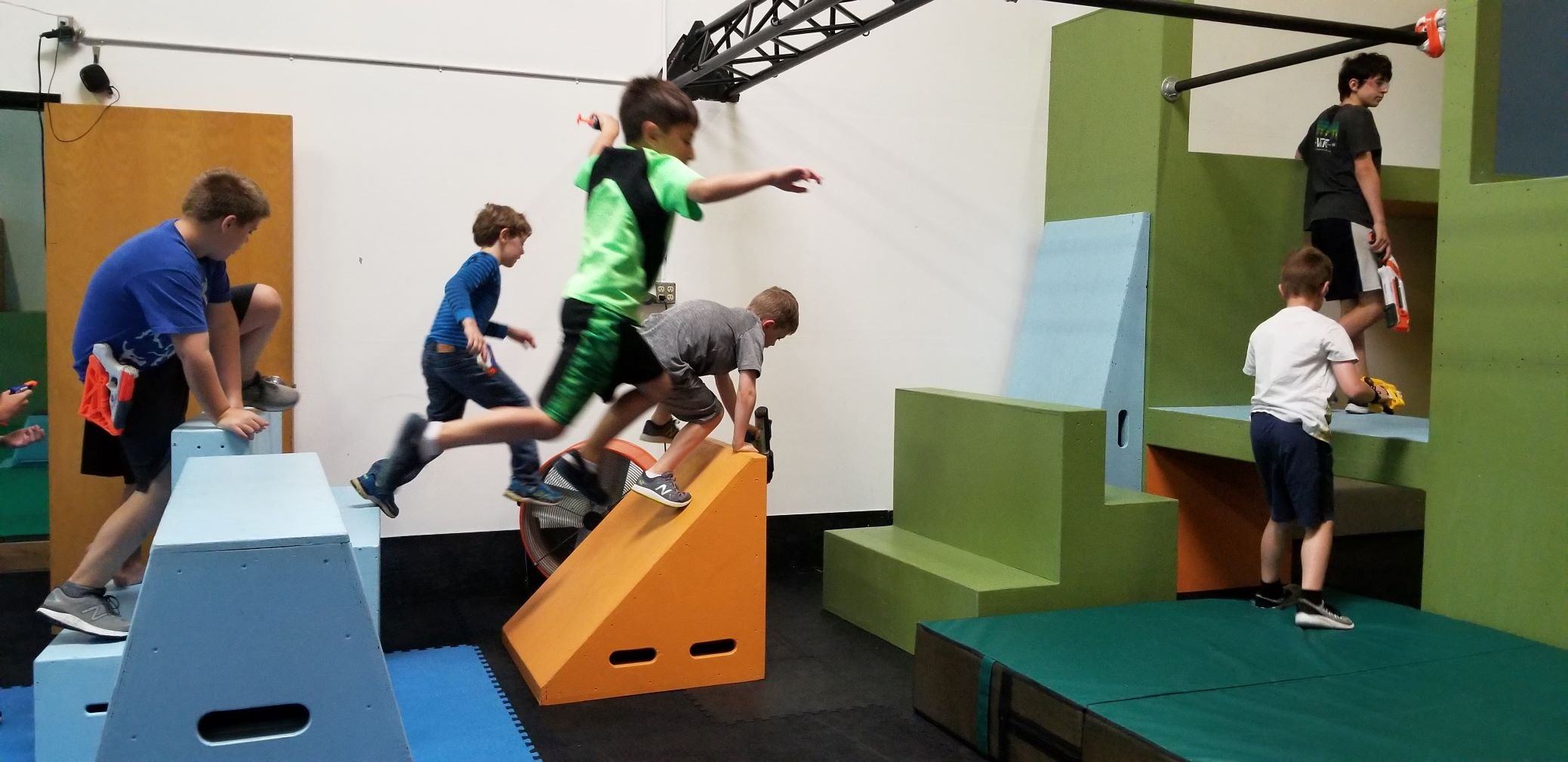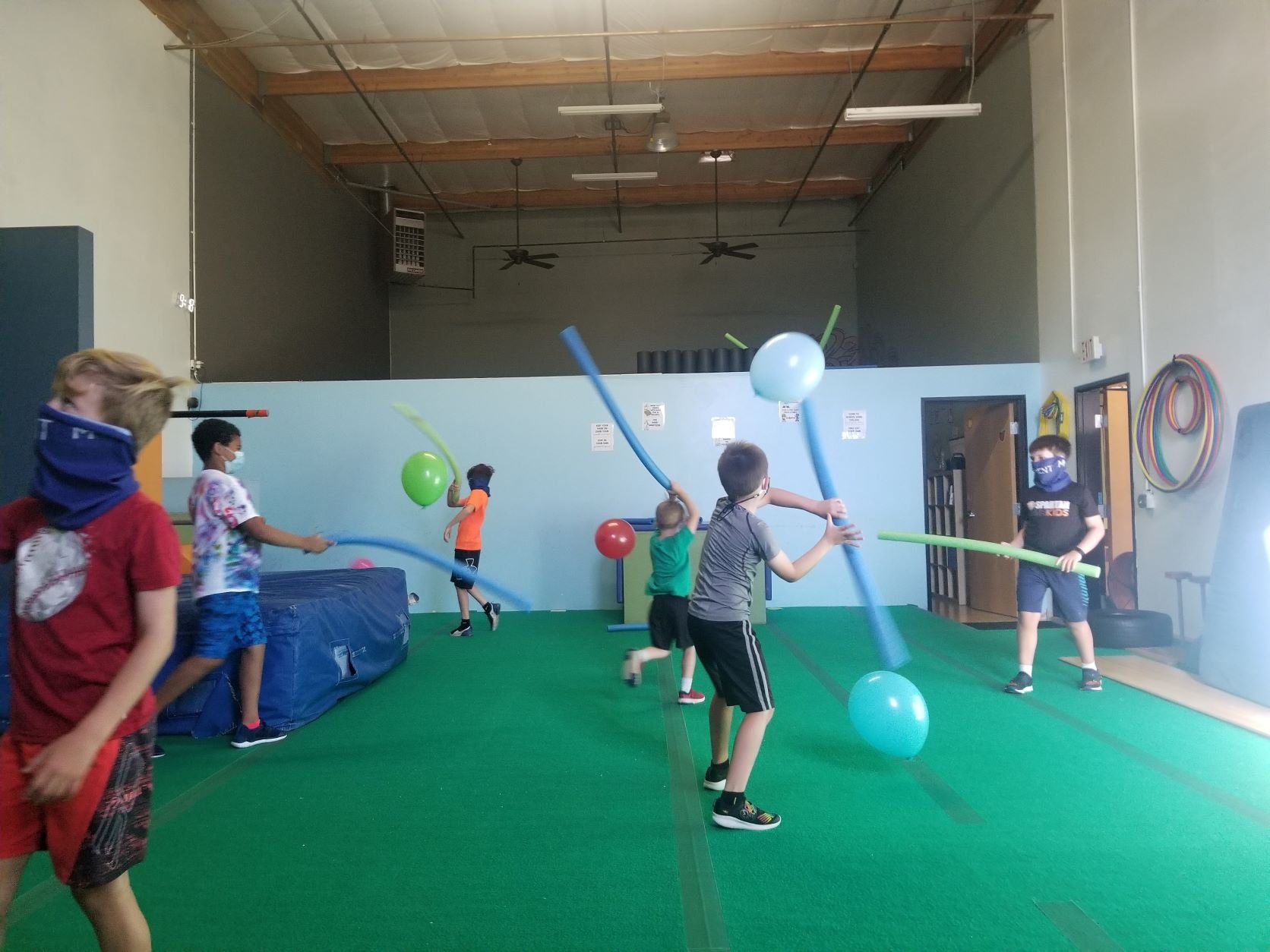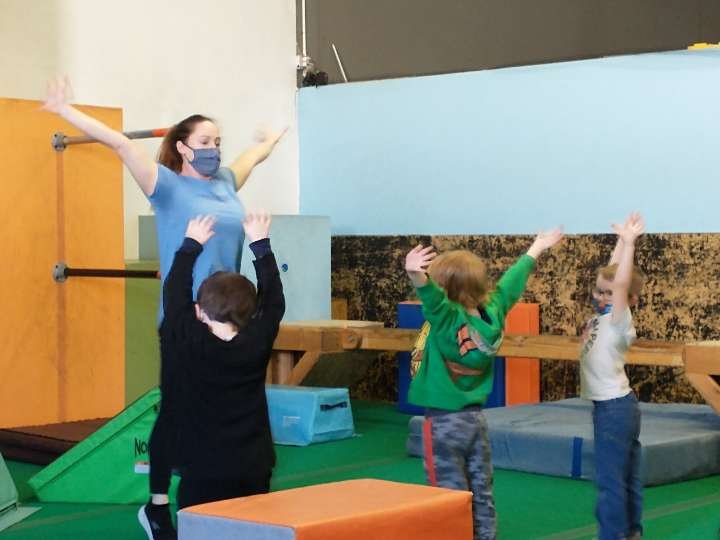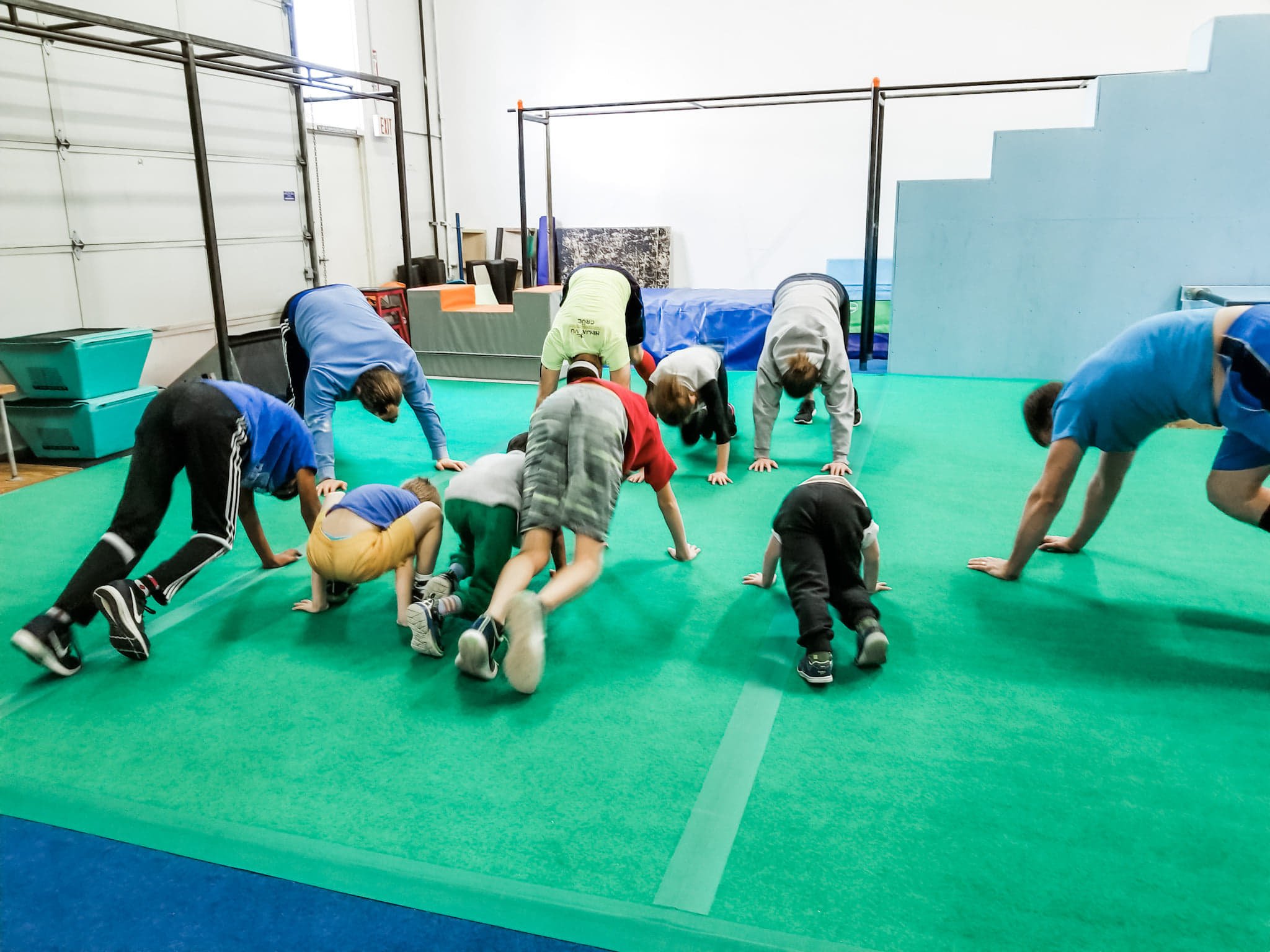The Importance of Physical Play
Why Do We Play? Because Play Allows Us to Learn!
As adults, we often have a hard time understanding how children can be so invested in play; it’s all-encompassing, and often repetitive, without an apparent goal. According to Mr. Fred Rogers, although “play is often talked about as if it were a relief from serious learning, for children, play IS serious learning. Play is really the work of childhood.(1)”
Renowned childhood expert Dr. Dan Siegel echoes this sentiment: “I think people have not emphasized enough in our scientific studies that play is to the mind like oxygen is to the body; we think of play from an intellectual point of view, we say, ‘It’s not serious. What a waste of time.(2)’” He goes on to explain that play is “the way the brain tries different combinations, explores them with curiosity and enters a state of spontaneity without judgment.” This sounds a lot like how we tackle problems in life (and not coincidentally, is the same way we tackle problems in parkour).
Is Play Really That Important? Yes, In More Ways Than We Realize.
If you Google “Importance of Play to Learning”, you will get back over 6 billion results:
It turns out that ‘fun’ really is ‘fundamental’ to our development. In fact, play is considered so necessary for healthy brain development that it has been recognized by the United Nations High Commission for Human Rights as a right of every child(3). This is because not only does it contribute to the social and emotional well-being of children; it also strongly affects their cognitive and physical development as well. Play allows children to develop their “imagination...dexterity, and physical, cognitive, and emotional strength.”
Active play has also been shown to have direct physical effects on the brain; it enhances the brain’s metabolism, resulting in better brain function and improved memory(4). It also contributes to the development of “Social, Language, Emotional, Cognitive and Physical skills”.
Children use play to build confidence, learn to interact with one another and problem solve, and control their emotions. When play is linked to exercise it releases endorphins and serotonin, which have a mood stabilizing and relaxing effect. To put it simply, physical play makes you feel better. Not only does it relax your body, but it also makes you feel better about yourself by building self-efficacy and self-esteem.
Is Play Just for Children? No! Adults Can Benefit Too!
It’s easy to forget that all of the research about the benefits of play for children also apply to the adult brain and body. This is why, as adults, we find that exercise clears our heads, and makes us feel better and more in control. No matter your age, exercise releases endorphins and serotonin causing profound positive effects. The only difference is that, in children, the effects last for longer.
How Does this Apply to Parkour? The Very Nature of Parkour Increases These Effects!
The “obstacle course” format of our parkour classes (where we continually switch from one obstacle to another), has been shown to help improve memory, reasoning, and task flexibility. All students are strengthening their bones and muscles, while also working on coordination, improved balance, and fine and gross motor control. No matter your age, level of training, or experience, by working on these skills you will continue to increase the functionality of your motor cortex and cerebellum.
Why The Movement Park? It’s The Perfect Place to Play, Learn, and Grow!
The Movement Park parkour classes provide a chance for children - and adults! - to play, learn, and grow both physically and mentally in a fun, safe, and challenging environment that lets you advance on your own terms.
Sometimes we (and our children!) need to get out of the house and interact with people face to face to get a break from the daily grind. Making time for yourself to play may feel unimportant, but participating in a class that focuses on a positive experience is a perfect way to overcome movement fears and work through past injuries, even if you don’t know how to start again.
Playful Exercise Is Something Positive Your Family Can Do Together, and We Can Help.
Come Play With Us at The Movement Park!
Sources:
1. “Play is the Work of Childhood.” By Children’s Friend. https://www.cfsri.org/play-is-the-work-of-childhood/ Accessed June 20, 2021.2.
2. “Yes Brain Parenting: An Interview with Dr. Dan Siegel”. by Good Therapy.org. https://www.goodtherapy.org/blog/yes-brain-parenting-interview-with-dr-dan-siegel-0123187 Accessed June 12, 2021.
3. Kenneth R. Ginsburg, the Committee on Communications, and the Committee on Psychosocial Aspects of Child and Family Health, Academy of Pediatrics. “The Importance of Play in Promoting Healthy Child Development and Maintaining Strong Parent-Child Bonds”. https://pediatrics.aappublications.org/content/119/1/182 Accessed June 12, 2021.
4. “Promoting Active Play (Physical Activity) in Early Years Settings.” https://www.ncn.ie/index.php/2-ncn/155-introduction-promoting-active-play-physical-activity-in-early-years-settings Accessed June 24, 2021.



